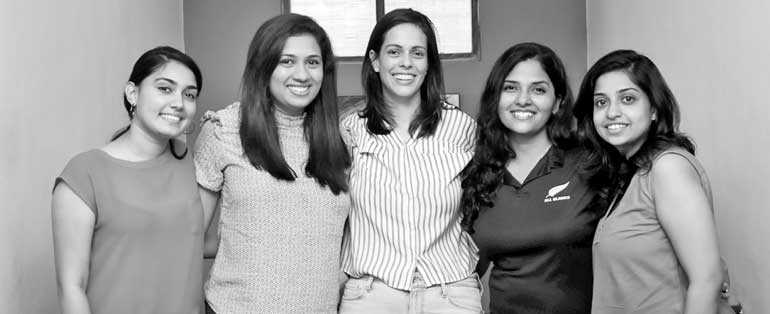Tuesday Feb 17, 2026
Tuesday Feb 17, 2026
Saturday, 30 November 2019 00:10 - - {{hitsCtrl.values.hits}}
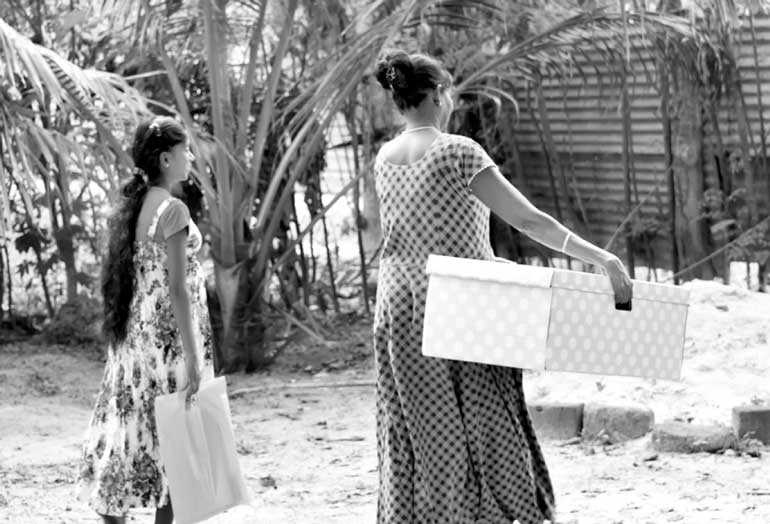
2018 Kaivelli distribution
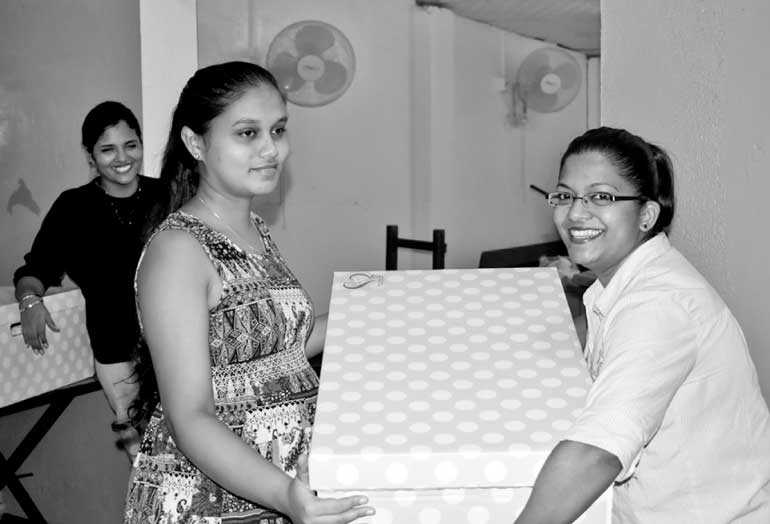
2018 Mattakuliya
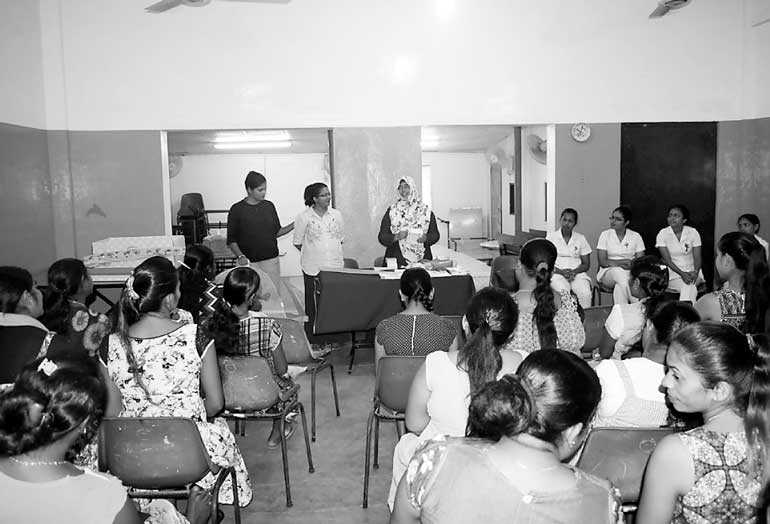
2018 Mattakuliya distribution
Motherhood and childbirth are highly revered in Sri Lanka but many often forget the cost of bearing and raising children. From medical expenses to purchasing essential items like clothing and toiletries, families face difficulties when caring for both the mother and the newborn baby.
The concept of a baby box was introduced in Finland as a way of covering a family’s expenses while also reducing the infant mortality rate. Essential items were packed in a cardboard box which doubled as a cot for the baby and the baby boxes were provided to low-income families. The concept has been adopted around the globe and the Baby Box Initiative introduced it to Sri Lanka.
The team, which is currently working on the 2020 project, consists of Vanessa Bibile, Sachee Siriwardena, Rukshani Weerasooriya, Nicole Parakrama, Shihara Ebel, Thavisha Gomez, Ashane Fernando, Keshi Fernando, Shehara Wickramaratne, Debbie Pereira, and Rushika Dias.
In an interview with Daily FT, they spoke about how the Baby Box Initiative came together and the communities they work with, as well as the response they received for the 2018 project
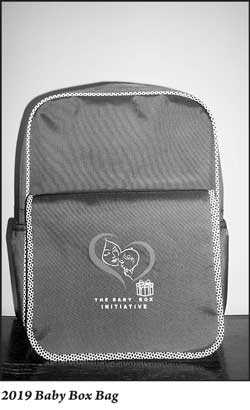 By Shailendree Wickrama Adittiya
By Shailendree Wickrama Adittiya
Q: Tell us a bit about the Baby Box Initiative and the team behind it?
A: Baby boxes originate in Finland. A baby box is essentially a simple cardboard box that doubles up as a safe place for an infant to sleep. It is generally filled with baby essentials, such as nappies, baby clothes and bath items.
Baby boxes have been distributed to new mothers in Finland since the 1930s, in an attempt to reduce high infant mortality rates and to help economically challenged parents. Today, baby box programs are carried out in many countries by governments, hospitals, and charitable organisations, etc. So although the concept is not new, it is perhaps new to Sri Lanka.
The ‘Baby Box Team’ or the group of people behind the Baby Box Initiative in Sri Lanka is made up of a small number of young women in Colombo, most of whom were pregnant or new to motherhood at the time this initiative began. The idea for the Baby Box Initiative in Sri Lanka was first sparked through a simple conversation between one of the team members and her friend in Scotland, about baby box programs in Scotland.
That simple conversation in 2018 gave birth to a vision for poor pregnant women in Sri Lanka, who, due to the realities that come with poverty, were struggling to provide for their unborn infants. The idea of distributing baby boxes in poor communities in Sri Lanka was shared among friends – who soon caught the same vision. When the team first met together, there was no money, concrete plan, or prior experience to draw from. There was only a vision and a desire to see it through. We took it step by step, talking with midwives in government clinics to identify the needs of pregnant women and working within the little networks we already had access to through friends and family.
We prayed over every step of this endeavour as we knew our limitations. The goal seemed mammoth at times, but our confidence grew, as we began to work towards it. After a few trips to Pettah and dozens of conversations with box and mattress manufacturers, and with tailors, we came up with a simple proposal, and reached out to family, friends, and co-workers to help us raise funds.
It was amazing to see how willing and ready people were to come on board with us. People gave so generously that although we initially aimed to reach only 60 pregnant women with a baby box in 2018, we ended up reaching 100 women in Mattakkuliya, Kaiveli, Thoppigala, and Embilipitiya. The women we reached came from various circumstances; some were isolated, some were desperate, one was begging on the road, some were malnourished, some travelled far for medical support, some were teenagers, and some had no family. But all were poor.
Q: Tell us a bit about the 2020 project. What are the highlights of the project?
A: We have expanded (and in some ways modified) our scope, based on the feedback received from the beneficiaries of the pilot project. This time, there will be a ‘Baby Box Bag’ and a ‘Hospital Bag’ being distributed – and there will also be educational programs carried out for parents.
Based on the feedback we received, a baby box will not be included in our gift this year due to negative cultural associations which resulted in most of the boxes not being used as cots in the villages in which they were distributed. However, essentially the same items that were contained in the Baby Box will be contained in what we are calling the Baby Box Bag this year.
The Baby Box Bag will be a durable gift bag that can be carried easily when travelling and used on a long term basis.
The Hospital Bag will contain items to cater to the wellbeing and dignity of the mothers themselves, particularly those faced with extreme poverty and who are single or who are the main source of income for their families. It was added to the program when we witnessed the desperate situations that many of the women, especially in places like Thoppigala, were in, when we went to distribute boxes in 2018.
The educational programs will encompass free workshops and discussions to educate and train expectant parents on how to foster a safe and loving home environment for their children.
Q: Tell us a bit more about the workshops you conduct. What topics do you cover and what are the key objectives?
A: The workshops are a new feature – they will focus on the role of fathers and mothers and will emphasise the importance of creating a home of love and security for children. The workshops will be customised according to the needs of each community.
We are currently working on a simple picture-based booklet on positive parenting, which can be referred to by any parent, including those who may be unable to read or write.
Q: How do you choose the communities you work with?
A: Several of us on the team have either worked at or are in some way associated with another community project called the Centre of Hope (COH). COH already has a presence in several rural villages across Sri Lanka. A majority of the areas we chose to reach under this initiative are areas that many of us have already worked in, and have connections to, through COH.
Embilipitiya, on the other hand, came about in a different way – one of our fundraising messages on social media reached a doctor in the Government hospital at Embilipitiya, who in turn reached out to us, asking if we could carry out a distribution there as well.
Just as was done in the pilot project, we leave it to the local community centres, hospitals, and medical clinics that we liaise with to identify the specific individuals who should benefit from the project. Accordingly, over 220 mothers in Mattakuliya, Embilipitiya, Peliyagoda, Thirrukkovil, Thoppigala, and Colombo have been identified.
Once again, due to the dire need that comes with poverty, more mothers have been identified than the original target number for the project (which was 150).
Q: What are the main things they lack, especially those essential for the care of a new-born and their mother?
A: The needs vary from location to location, but in general, many of the parents we reach out to struggle to provide for the basic comfort and care of their new-borns.
For example, when we visited some of the families in Kaivelli in 2018, we saw infants wrapped in used sarongs. In Mattakkuliya, the entire family, including newborn babies, slept on the floor on mats, and most without a mosquito net. Many did not have nappies.
Pregnant mothers who live in the jungles of Thoppigala did not have basic necessities for themselves, let alone their babies. They walked barefoot – naturally, one of the things they asked us for were slippers! Although we provided them with sanitary napkins, they did not have undergarments to enable them to use such things. It was heart-breaking to think how much we take for granted.
Q: What do you provide them with?
A: Each Baby Box Bag will have 22 different baby items, including cloth nappies, nappy pins, baby shirts, and baby vests, caps, socks and mittens, a carry quilt and blanket for a new-born, mackintosh and draw sheets, burp cloths, wash cloths, a baby towel, bibs, baby soap, cream and cologne, soap dish, cloth pegs, cotton wool, a plate and spoon, a rattle and, very importantly, a mosquito net!
Just as we did with the pilot project, at the point of distribution, the Baby Box Team, together with a community midwife, will demonstrate to the mothers how the items should be used. Young mothers are even shown how to pin a nappy for a baby.
Each Hospital Bag will provide mothers with 17 different items for their personal care and comfort. These include bed jackets and wrap-around cloths, undergarments and sanitary napkins, milk powder, nutritional supplements (as recommended by community doctors), a towel, flask, toiletries, and slippers!
Each item, including the bags, are carefully selected to ensure quality and durability. Each item of clothing for both mothers and babies, and all the baby linen, are custom-made for this project. There are also many items that are purchased off the shelf.
Q: What’s the importance of providing such essentials both for the new-born baby and their mother?
A: Considering the circumstances of these women, we hope that the provision of these essentials would have the effect of empowering them and giving them the confidence they need to face the future.
The Baby Box Team maintains the philosophy that what we give, we ourselves, as mothers, would use for our own babies. This is important, because although we serve people who may have less than us, we need to serve them with love, sincerity, and respect.
Each bag is a gift with a purpose – it is a gift to help babies born into poor circumstances have an equal start in life. It is a gift to symbolise the value of each baby and the dignity of every mother, whatever circumstances they may be in.
Q: What are the previous projects you’ve worked on?
A: While several of us have engaged in small community service projects, the first time we got together as a team was to work on this very special project.
Q: How has the response both from the communities you have helped and volunteers, donors, etc. been?
A: When we first went out with our proposal in 2018, the response we received was extremely positive. Individuals and corporates went out of their way to come alongside us. We had over 50 volunteers show up to help us pack the boxes.
We had friends and family from abroad helping us raise funds. We even had volunteers and donors who joined us in distributing the items in some locations. The medical professionals and community workers we worked with in 2018, expressed appreciation for the initiative and emphasised the necessity for continuing the project in the years to come.
Beneficiary mothers from each community we reached shared their deep gratitude for what they received. When distributing the boxes, we told them that many people had joined hands to give, raise funds, purchase items, and pack the items for them. We hoped that it would give them a sense of community – to defuse the loneliness and isolation that can come with their circumstances.
Q: What have been significant moments from your projects?
A: Every phase of the project has had significant moments for us as a team. It was a very personal experience for many on the team, who were pregnant or were new mothers, to see the project unfold.
It was special to see that many people outside the team were ready to give of their money and time towards the project. Suppliers willingly reduced their rates and companies got in touch with us voluntarily to support the initiative. Many different groups of people, both young and old, male and female, came together to pack the boxes. Medical staff from local clinics were present at each distribution and one midwife even travelled with us for an entire day from village to village in Thoppigala.
Distributing the items to the mothers, seeing the smiles on their faces and tears in their eyes made us realise that the need was real, and that our effort was completely worthwhile.
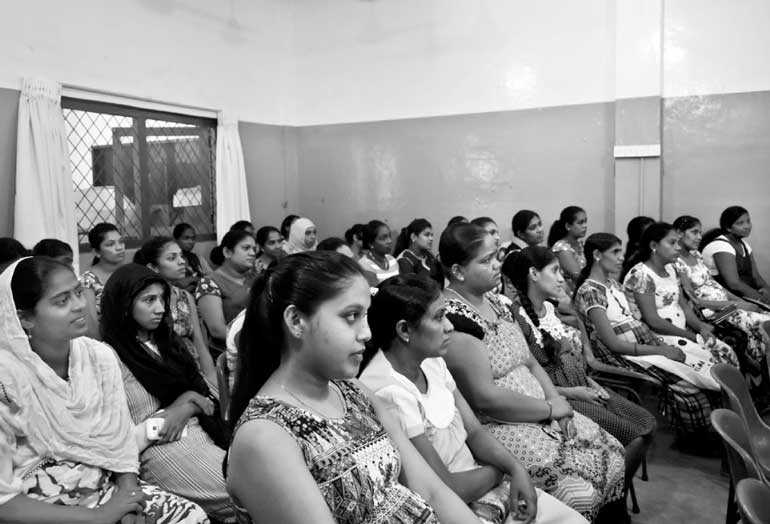
2018 Mattakuliya moms
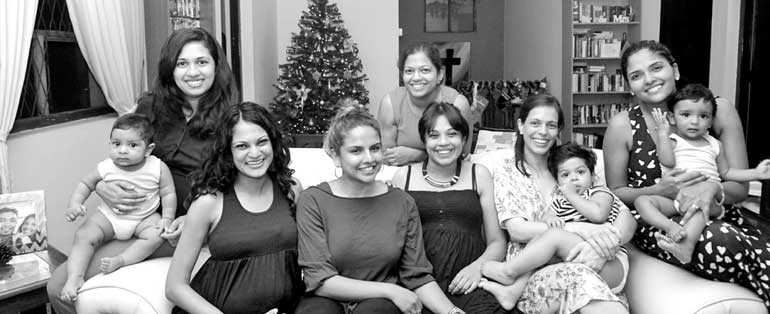
The Baby Box Initiative team
